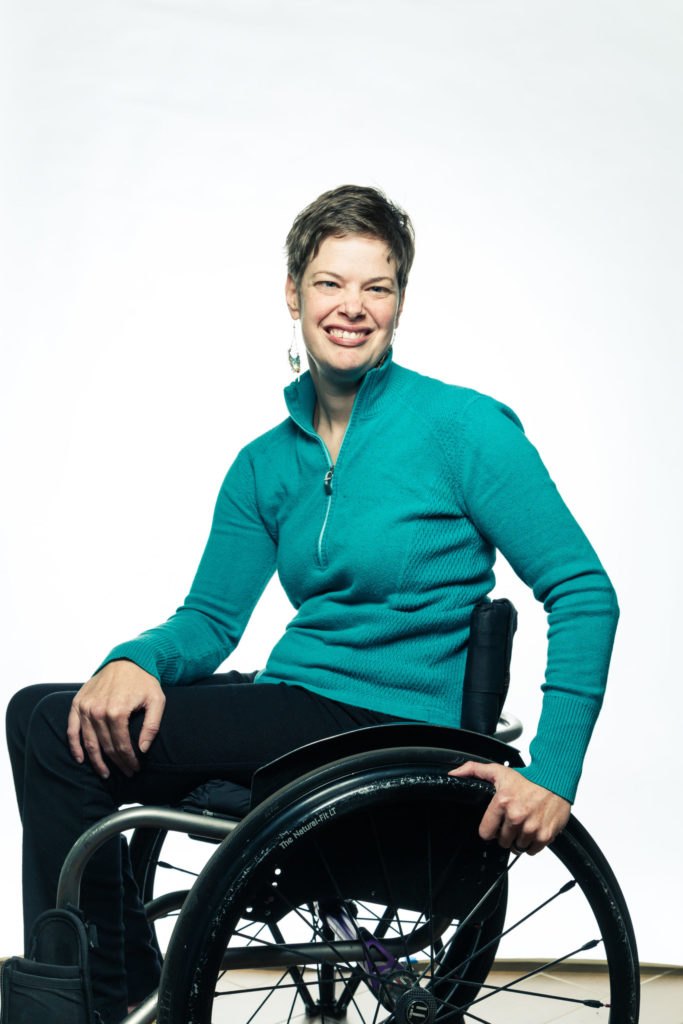
Meghan Sellet has been repeatedly asked the same question throughout the college’s virtual learning period: how do we make sure our students remain engaged?
As the director of the Accessibility Resource Center, Sellet collaborates with members of the TCNJ community to facilitate access and promote an awareness of disability as a facet of human diversity.
During a traditional academic year, Sellet and the ARC team assist over 950 members of the campus community in a variety of ways, including academic and classroom accommodations, dietary modifications, and housing and workplace accommodations.
“We’re operating at full capacity, if not overdrive,” says Sellet, whose office quickly moved its services into the virtual environment as courses went remote last spring.
To keep students engaged in the virtual classroom involves working to build an educational framework that offers all students the opportunity to succeed in their learning environment. Multiple modes of assessment, flexible due dates, and more time for tests are all examples of simple ways to reduce or remove barriers for all students.
Increasing access and accommodations has become a campus-wide initiative among faculty, staff, and students.
“We’re collaborating more than ever before in regards to universal design for learning and promoting flexibility because life is happening to us all at this moment,” she says.
The newly formed ARC Advisory Board has also been working with campus constituents to address issues of accessibility across campus, including adding captions on Zoom and Google Meets, and examining perspectives on disability as a facet of campus culture in general.
“Access means different things for different people,” Sellet says. “Faculty are doing a great job of recognizing that and building out these robust courses.”
For more information about ARC or the advisory board, email arc@tcnj.edu or visit arc.tcnj.edu
Google Meet and Zoom are making it easier than ever to collaborate remotely, but make sure you’re making the most of the meeting for everyone involved.
Here are 10 tips from Meghan Sellet on making your virtual meeting more accessible:
- Speak clearly and enunciate your words as best as you can.
- Introduce yourself each time you speak.
- Describe what’s on the screen for those who may have stepped away, as well as for those who are blind or visually impaired.
- Use the chat function sparingly since this feature is not as seamlessly accessible for those who use assistive technology, such as screen readers.
- Do your research about the meeting platform you use to ensure that you are familiar with its accessibility functions.
- Record and archive sessions for future reference and review.
- Share electronic versions of documents ahead of any sessions.
- Ensure that captioning is provided if available and/or requested.
- Present meeting content in multiple ways.
- Establish formal rules of communication at the start of any meeting.
